To Come Back to Love: Reminders for Making Visible the Invisible
Filmmaker Xiaolu Wang shares a love letter to her collaborators, revealing the complex dynamics of friendship, family, and internalized oppression that arise through the practical and emotional labor of creating an autobiographical film.
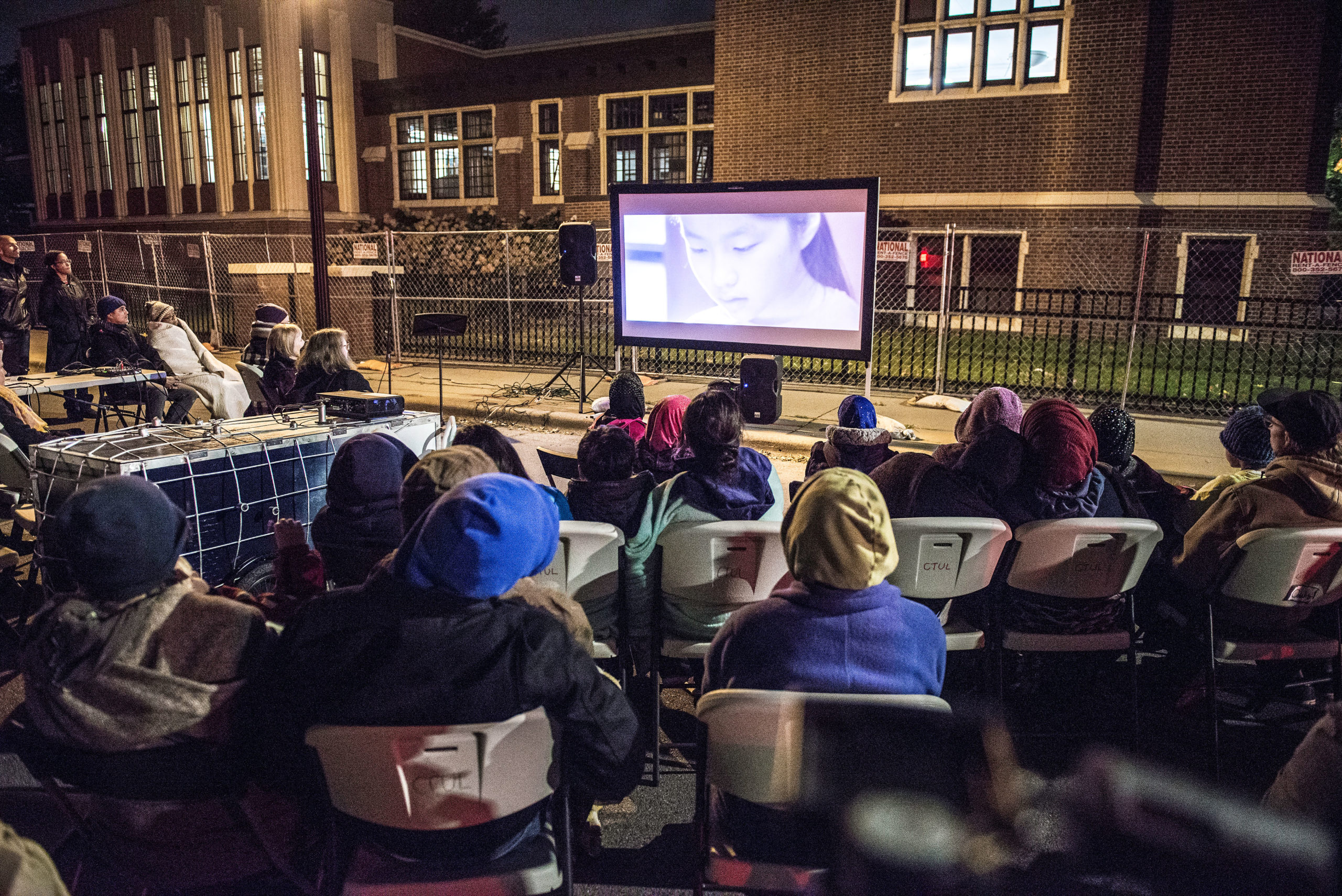
I am a Chinese transplant and a filmmaker. My vision for filmmaking is to make visible the invisible: I am fascinated by what’s not said, or not shown, in the media landscape. A lot of my stories are based on memories, and often a specific emotion.
I made a short film about my own name when I was 25, with a camera and two friends, some PVC pipes, a few neighborhoods, plus a creek and some rain. The story is to honor a friend and my 14-year-old self. I did it as a challenge, while juggling a full-time job and a communal living space. I posted the film online and continued with my full-time job, until my itch for growth overruled the nine-to-five stability.
My love affair with filmmaking started with my need to learn English when I immigrated to the U.S. as a teenager. I worked at a movie rental house as my first part-time job. I devoured films as much as I could, as often as I could. But my story is not one of those inspiring stories where I would pick up the skills right away to express my teenage angst. To just do it. I was busily absorbed in adjusting to whiteness and being the spokesperson about China, in addition to living with my mother for the first time since I was four, and crying at my stepdad whenever my mother and I started to engage in our routine warfares. No thanks, I’ve got enough things to worry about other than making art.
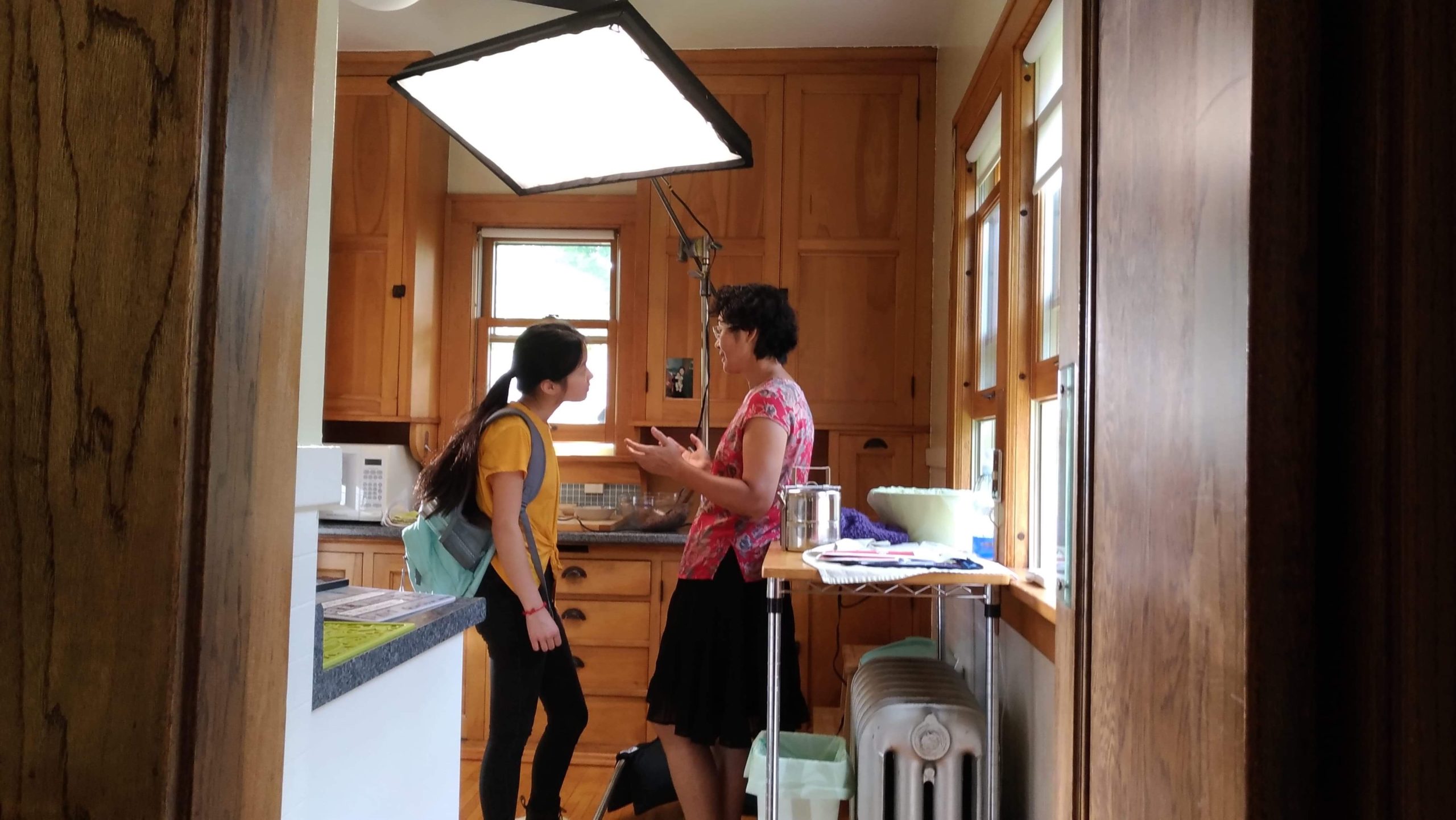
Maybe all of the busyness with survival are just excuses for believing in myself. I just recently realized that I would rarely use the word “believe” in a sentence with “myself,” except for when it’s a question.
I don’t think I have memory of not questioning myself. After years of doing different personality tests and investing in self-improvement methodologies, I have come to acknowledge the fact that I am very sensitive and the exact opposite of thick-skinned, which means it takes a very long time to trust people and to just feel safe enough.
“Kindness eases change.
Love quiets fear.
And a sweet and powerful
Positive obsession
Blunts pain,
Diverts rage,
And engages each of us
In the greatest,
The most intense
Of our chosen struggles.”
Octavia E. Butler, Parable of the Talents
If the attempt is to name what motivated me to create Dumpling, I have to always come back to love. Cheesy, but I am not apologizing for it. It’s the love of friendship, of stories, of the messy, confusing―but rewarding―process of it all. And there are two very important people who have taught me and continue to teach me about love and trust while balancing multiple projects, making mistakes along the way, and constantly watching movies instead of the news.
Dearest Simone and Tahiel,
The first time I met you, Simone, it was on a bright day after the snowstorm in February. The unapologetic light melted away layers of rigid ice. Our meeting was delayed for a month or so since you were abroad, but I was eager to meet you after seeing your work. I walked to Common Roots Cafe from south Minneapolis to meet with you. From the moment you walked into the cafe, you also made a graceful entrance into my life. We would later be captivated by many long hours of conversations about EVERYTHING:
about being Capricorns,
about relating to our mothers,
about the little haters in our heads,
about feeling inadequate,
about the contempt we share for white feminism,
about invisible emotional labor on film productions,
about our relationship to ease, to trust, to manifestation, to discipline,
about why and how people perform “authenticity,”
about expressions,
about getting things for free,
about oracles,
about capitalism and productivity,
about how we both struggle with rest,
about movies we are influenced by…
Getting to know you seamlessly became a rediscovery of the parts of me that I forgot to treasure, admire, and―that word― “believe” in. I was dying to have the conversations we were having.
The first time I met you, Tahiel, it was on the set of Simone’s production To Ana. There was a mirror as part of the production design, and you came in and waved at me through the reflection of the mirror, which later you claimed to not remember at all. I was delighted to be greeted in such a way. We exchanged information as I found out you are a cinematographer, and we met a week later at a cafe, where I found out more about your story, that we share a similar narrative of immigrating to America. We are sons and daughters in diaspora, of mothers who are bold and ambitious women from the East and the indigenous Americas. They left us to secure the American dream, but nonetheless, they carried us along with their dreams and the necessities of survival.
We would go on an auspicious trip, back to where the story of Dumpling started. You both would give your time and attention, in-kind, for a journey you didn’t yet know where it would lead. I hadn’t visited South Dakota since I left high school there. I tried my hardest to avoid that place. To me, it was like opening an old wound, but your enthusiasm and commitment made me step into a new possibility. You affirmed to me that I am much stronger than what America made me to believe.
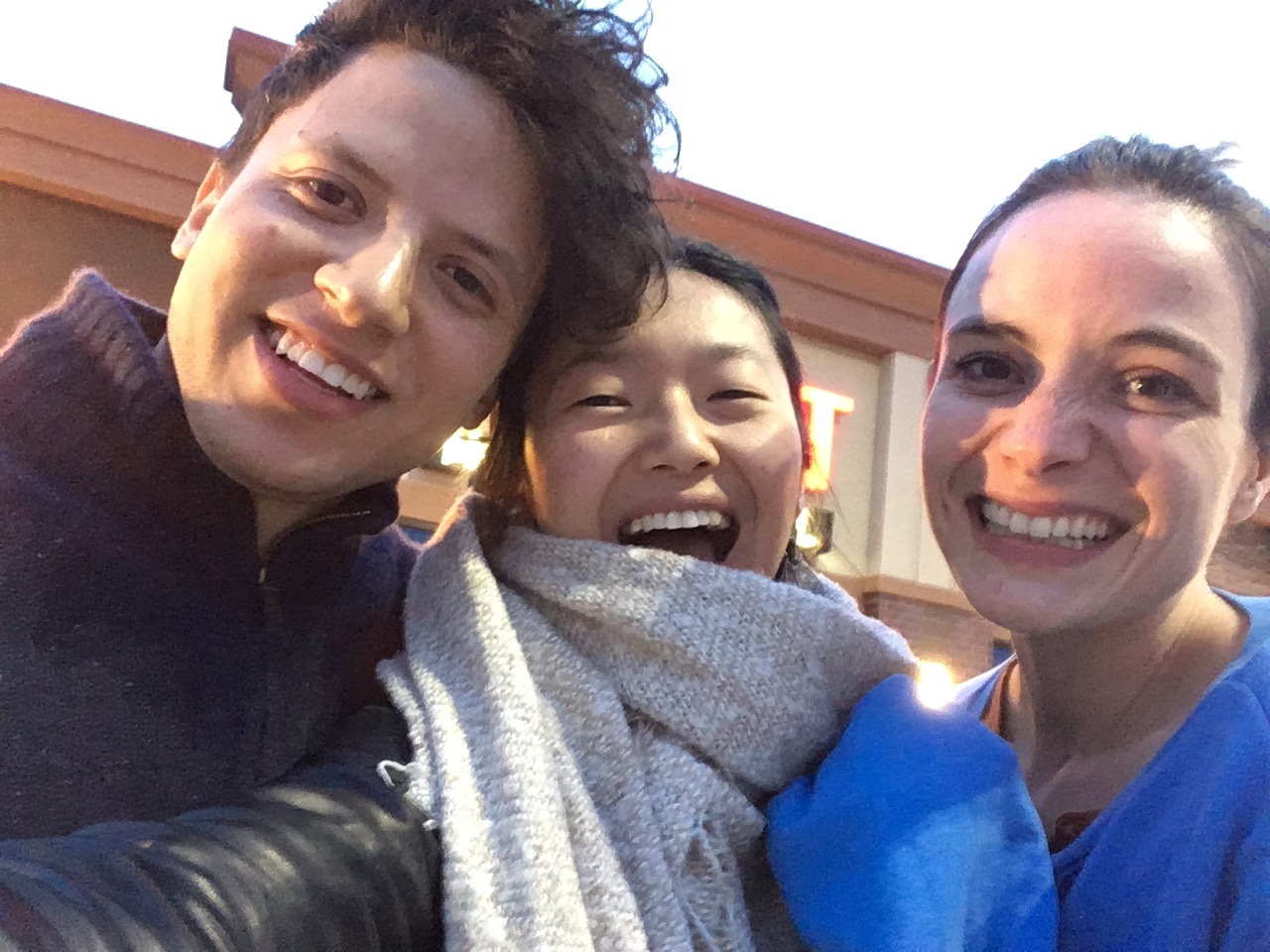
We started bonding, went on location scouts to different high schools, sat at parks in generous sunshine, watched more movies together. A month before production, the preparation for Dumpling was in full force, posting casting calls on social media, getting the word out about the film, organizing auditions, making it more and more real, step by step. Much to my surprise, people supported the story and wanted to be a part of it. As the responses from the crew members to talents to volunteers came in, I learned to relax and trust. It had become something tangible to me. The making of Dumpling became one tiny seed of our collaborations, artistic growth, commitment, and a start for a collective dream.
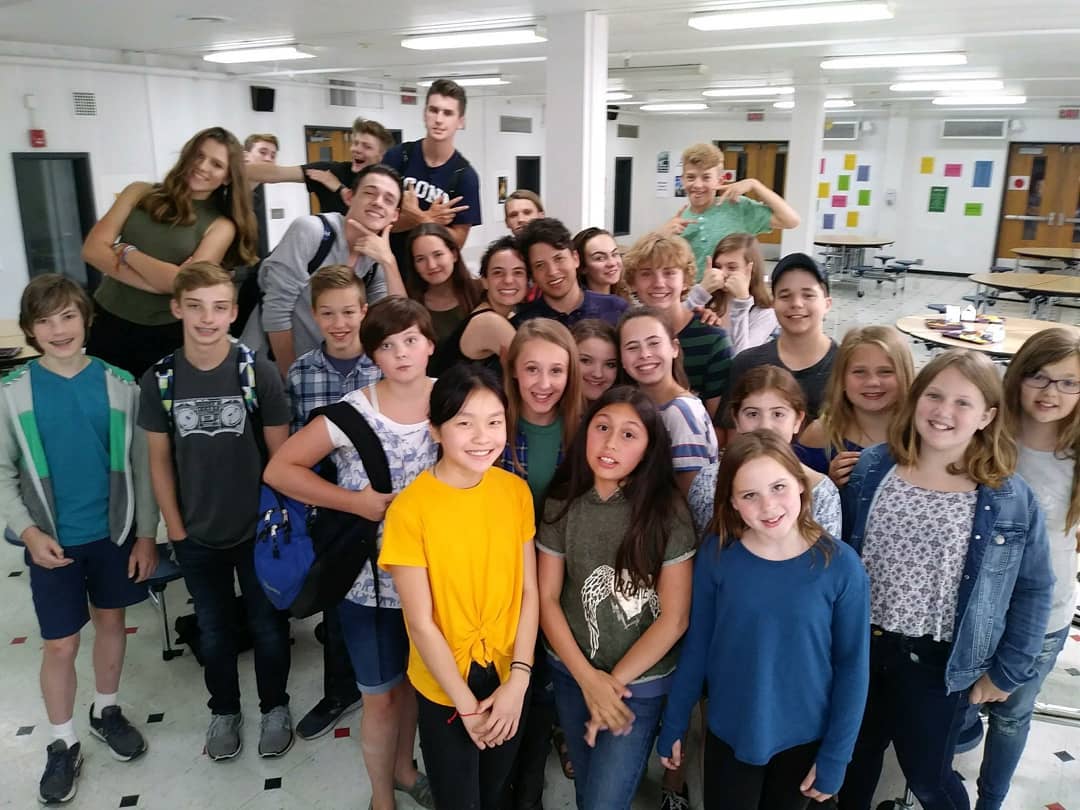
But my internalized oppression never left. On the first day of production, only hours in, I get questioned from a white man on set, “What’s the point of this scene?” This question in itself shouldn’t have any weight. It’s a question that has an answer; it could also just go in one ear and out the other. But the fact it came out so automatically, without doubt or consideration, landed with some heaviness in my heart. This is not my first experience of having to prove my worth and work, when others in my position might not be questioned in the first place. I get these kinds of questions whenever I hold a camera in public, in spaces where an Asian American woman is not supposed to be there―and especially while holding a camera. After a while, what I hear is not just a question, it also becomes a trigger to pain and grief. It cuts deep, reminding me constantly that I may be a fragile human with unreasonable ambitions after all, that my life may be a never-ending journey of proving my legitimacy.
I don’t think I have memory of not questioning myself.
Such a legitimate question from another person is just too exhausting to answer.
However, this drop of an incident, like whiteness, should never overshadow the joy, the triumph, the sincere mischief of making Dumpling, of owning my own story.
Dumpling was held and impacted by multitudes of love. Friends organized dumpling deliveries to the set, the majority of the crew donated their time and skills to the production, many celebrated artists and filmmakers have given valuable feedback to the film, and mothers and community members have all offered to bring the film to their community.
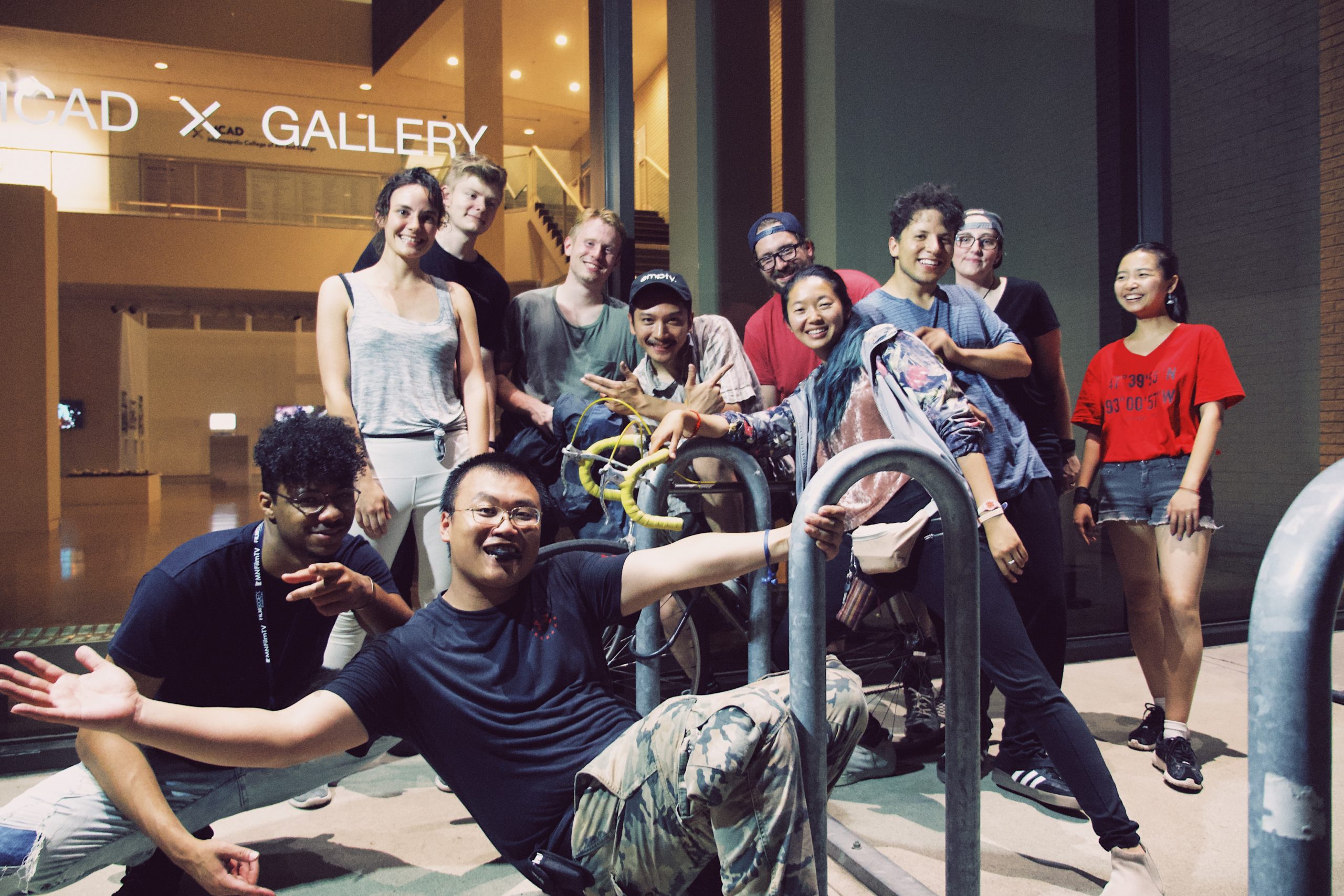
Rewind backward all the way to the end of 2017: I was on a train from Shenzhen to Shanghai in China. I was taking a trip for the first time with my father. We have an almost non-existent relationship, but the internet keeps us in touch. I had encountered a social game based in Shanghai, called 醒來 (xing lai)―the closest translation would be “wake up” or “awakening.” It was designed for visitors to question their own values and life narratives before death. You enter the game with a few strangers and I invited my dad along. Some people thought it was a haunted house, but I came with the expectation of a transformative experience. There are eight stages of the game, and one person has to “die” per stage. My dad and I made it through “alive” as the last ones. Then came a moment. We had to decide who goes first. My dad stood up without hesitation and walked towards the gate as they shut off the light, leaving me sitting in the dark, crying. Crying alone.
So dear Simone and Tahiel, that’s what I was carrying before I met you, and the rest is history.
This piece was commissioned and developed as part of a series by guest editor Saymoukda Duangphouxay Vongsay.